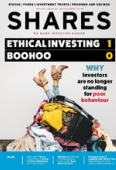Archived article
Please note that tax, investment, pension and ISA rules can change and the information and any views contained in this article may now be inaccurate.
Why are AIM stocks so volatile and what role do market makers play?

The fluctuation in share prices for AIM stocks can be extreme; can you explain how the market works and the role of the market makers in setting prices?
David
Deputy Editor, Tom Sieber replies
Investors in smaller companies are often frustrated about their inability to buy and sell as many shares as they want and at the price they want, particularly when a big announcement comes out.
Market makers are the banks or stockbrokers which commit to trading shares so you can always buy and sell on an exchange during normal market hours. They attract criticism for the role they play in creating frustration for investors.
Their job is more important with AIM and small cap stocks as, unlike their larger counterparts in the FTSE 350, there aren’t always investors lining up to buy or sell shares. In other words, there is less liquidity.
Nick Conyerd, head of market making at Shore Capital, says there are several different factors behind setting a price. ‘The concept of supply and demand is fundamental to the pricing of all securities,’ he comments. ‘Significant news events often generate considerable interest from investors and as such a market maker will respond to the demand that such statements may encourage. Equally, the supply of stock into that demand also dictates how market makers will price the stock.
He adds: ‘The obligation of a market maker to provide liquidity upon request, dictates that regardless of client orders being worked a market maker will at some stage have to make prices on risk. The management of risk, therefore, is also crucial in determining how a market maker responds to a news statement.’
The price you pay to buy a stock is nearly always higher than the price you get quoted to sell a stock. As Conyerd suggests, the spread between the two is the compensation a market maker gets for the risk of holding shares.
After all they may see a decline in the value of a stock after it has been purchased from a seller and before it is sold to a buyer. This is even before you consider that market making is a commercial activity and the spread is where the money is made.
Another factor to weigh is that market makers, which usually only hold a modest number of shares, will set their price at a level which they know they will be able to both buy and sell stock.
You may find it difficult to buy shares which are rising sharply, but this is likely because the market makers themselves are struggling to find sellers from whom to buy stock.
Regulation has improved the situation for retail investors, effectively pushing brokers and market makers to deliver the best outcome for clients, however the nature of the small cap market and the more limited liquidity in small cap shares means both the volatility and spreads will be higher.
This can be particularly true when there are only one or two market makers in a stock, with the limited competition reducing the incentive to keep spreads lower.
DO YOU HAVE ANY QUESTIONS ABOUT MARKETS AND INVESTING?
Let us know if we can help explain how something works or any other question relating to markets and investing. We’ll do our best to answer your question in a future edition of Shares.
Email editorial@sharesmagazine.co.uk with ‘Reader question’ in the subject line.
Please note, we only provide information and we do not provide financial advice. We cannot comment on individual stocks, bonds, investment trusts, ETFs or funds. If you’re unsure please consult a suitably qualified financial adviser.
Important information:
These articles are provided by Shares magazine which is published by AJ Bell Media, a part of AJ Bell. Shares is not written by AJ Bell.
Shares is provided for your general information and use and is not a personal recommendation to invest. It is not intended to be relied upon by you in making or not making any investment decisions. The investments referred to in these articles will not be suitable for all investors. If in doubt please seek appropriate independent financial advice.
Investors acting on the information in these articles do so at their own risk and AJ Bell Media and its staff do not accept liability for losses suffered by investors as a result of their investment decisions.
Issue contents
Editor's View
Feature
First-time Investor
Great Ideas
- Market share gains to fuel Motorpoint
- Analyst upgrades Luceco forecasts for the second time in as many months
- Play the healthcare boom via ‘best in class’ UDG
- QinetiQ growth strategy progressing despite challenges
- Buy care home investor Target Healthcare for a 6% yield
- Hipgnosis is cashed up and ready to buy more songs
- Ocado has a monumental growth opportunity
Investment Trusts
Money Matters
News
- US earnings season unlikely to add clarity to full year outlook
- Red hot Tesla could put huge stock offering on the table
- Fevertree shares fall on margin concerns
- Global company debt could jump by $1 trillion in 2020
- Halma’s record profit streak set to end
- B&M shares hit new record high as analysts upgrade forecasts
 magazine
magazine








